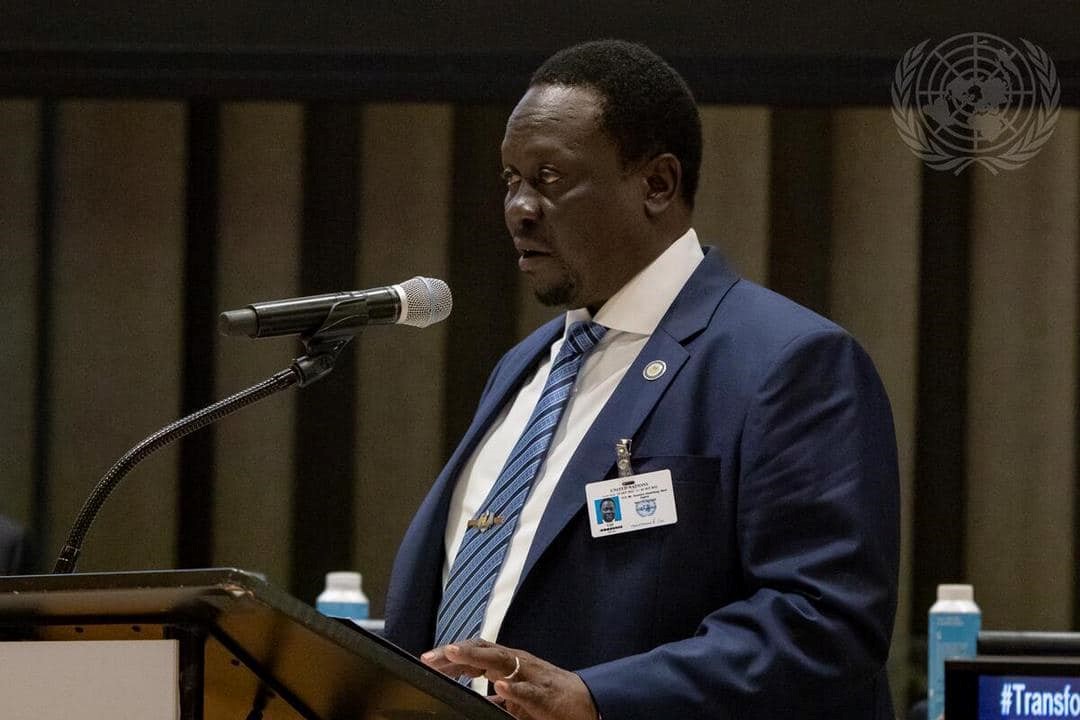South Sudan’s Vice President for Service Cluster, Hussein Abdelbagi Akol on Tuesday during his address at the transforming Education Summit at the 77th UN General Assembly in New York disclosed plans by government to elevate the education monetary allocation from the current 8 to 20 percent.
Mr.Hussein says this will help South Sudan to clutch faster towards the realization of Sustainable Development Goal number 4—which is the achievement of universal, inclusive, and equitable basic education for all school-age children by 2030.
“I focus my remarks on expediting the proposed 20% increase of education budget between now and 2030 before commencing a countrywide recruitment of qualified teachers to facilitate effective learning,” Akol said.
The cluster service president also revealed that the government is ready to upsurge access of quality education to more than 2.8 million South Sudanese children who are presumed to be out of school till now.
“It becomes imperative for us to invest in education so as to increase access to it by more than 2.8m children who are currently out of school,” he added.
Mr.Akol further divulged that the government will improve teachers’ remuneration and their working conditions in order to have them motivated in the job of providing quality education.
“We are advancing school enrollment rate, especially for girls as we strive for an inclusive education capable of giving us the transformed generation that we want through framing stronger educational policies and national curriculum,” he continued.
A faction of South Sudanese people believe that limited public investment in the education sector is responsible for the critical shortage of qualified teachers in the country where an estimated 62 percent and 44 of primary and secondary school teachers respectively are not qualified.
Many teachers in South Sudan abandon teaching profession due to irregular payment and unfriendly working condition despite an injection of over 107 billion pounds to the sector by government during the previous annual budget allocation.












